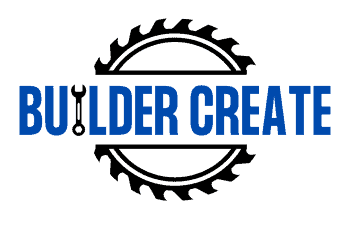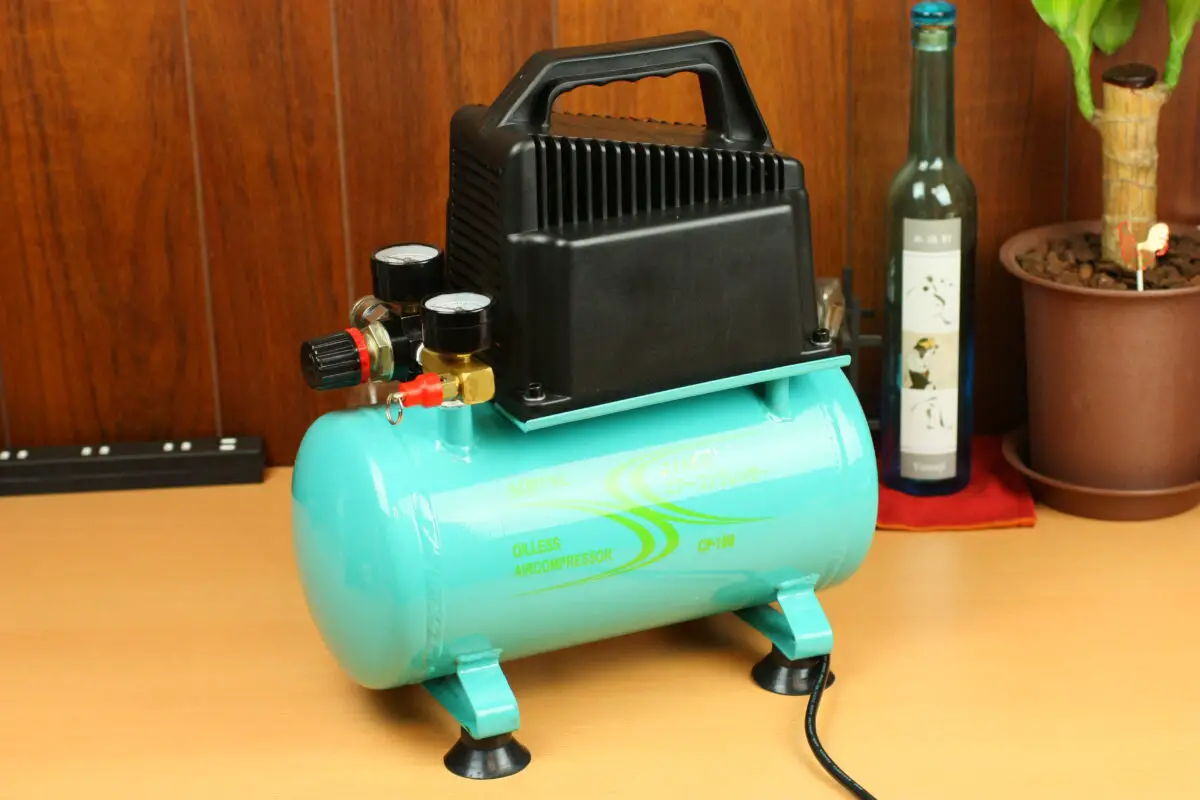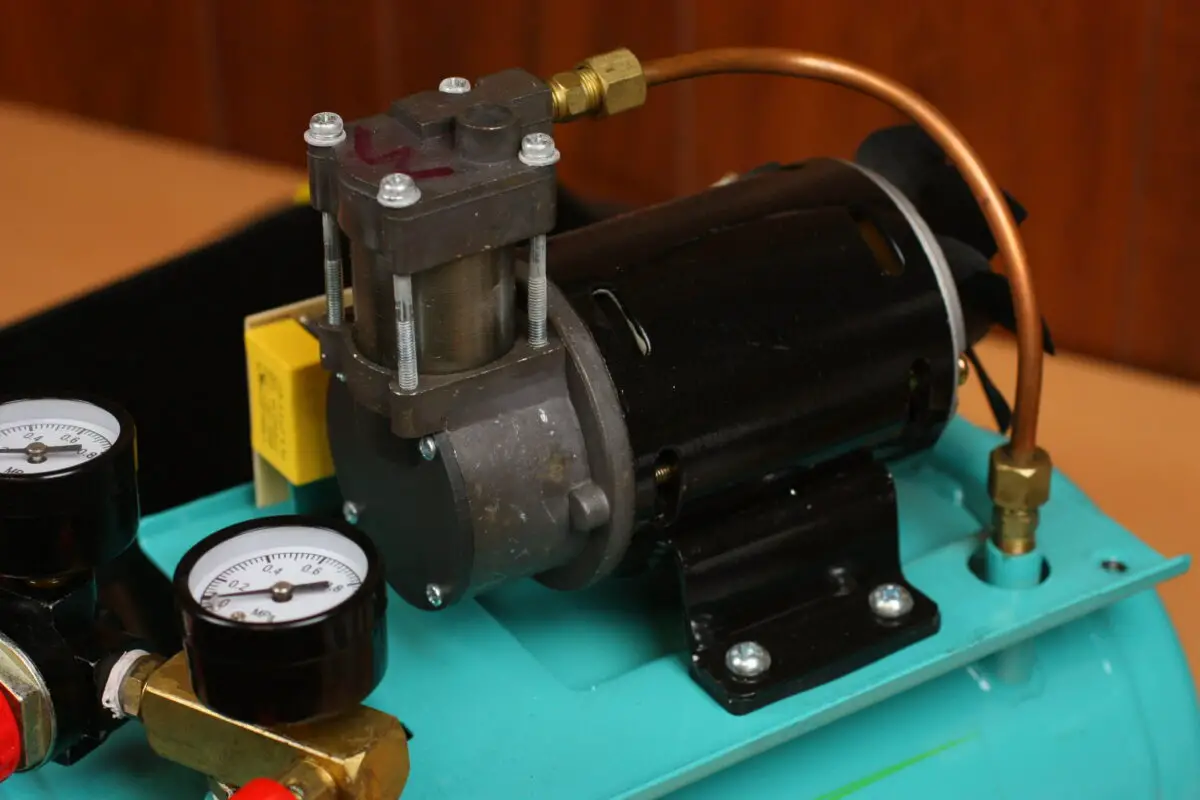Can’t decide whether to invest in an air compressor or an air blower? I’ve worked with both tools as a DIY expert throughout my career. I’m here to help you understand the differences between air compressor vs blower to determine which one is the best fit for your needs.
Contents
Air Compressor vs Blower
When tackling DIY home improvement projects, I often find myself comparing the merits of different tools. In this section, I will briefly discuss the overview of air compressors and air blowers to help you decide which machine suits your needs best.
Air Compressor Overview
Air compressors transform regular, atmospheric air into pressurized compressed air. It mainly relies on centrifugal force or blade angle to compress air into a small space, making it denser and operating at a high pressure-to-volume ratio. There are gas and electric air compressor available today.
Compressors deliver compressed air with significant power by trapping air in a chamber and then releasing it through an outlet. There are two types of compressors you might encounter.
- Piston compressors: They use a piston and cylinder to compress the air.
- Rotary screw compressors: They utilize a pair of interlocking screws that force the air into a smaller space.
Air Blower Overview
Air blowers are devices that push out the air by increasing its pressure and speed. Their main function is to move air or gas with a moderate increase in pressure. They operate with a low-pressure ratio, which makes them ideal for high-volume air movement but with less pressure.
There are a few common types of blowers you might come across in the world of DIY home improvement.
- Centrifugal blowers: These are known for their high volume, low-pressure air movement capabilities.
- Positive displacement blowers: These use a mechanism such as rotating lobes or gears to move air or gas at a constant volume.
Comparing Air Blowers and Air Compressors
In my experience as a DIY home improvement enthusiast, I’ve found that compressors and blowers have unique purposes and functions.
Similarities
Both air compressors and air blowers are valuable tools for DIY home improvement enthusiasts. They share similarities, like their fundamental purpose: supplying pressurized or compressed air for various applications.
As a DIY expert, I can attest that both devices compress and deliver air, although they do it differently. Regardless of their operational differences, both tools can come in handy while working on home improvement projects.
Differences
Knowing the differences between these two tools will help you choose the right one for your project.
| Aspect | Air Compressor | Air Blower |
|---|---|---|
| Working Principle | Traps air in a pressurized chamber and reduces the chamber’s volume to compress the air, resulting in high-pressure output. | Moves air/gas with a moderate increase in pressure. Operates at a lower pressure ratio, suitable for high air volumes at lower pressures. |
| Operation | Stores air in a tank and releases it when needed, providing more power but only for short durations. | Delivers a continuous flow of air, ideal for tasks needing a constant air supply. |
| Pressure Capabilities / Airflow Rate | Known for high-pressure output, compressing air into a denser form. | Provides a moderate increase in pressure with a focus on airflow, maintaining a lower pressure ratio. |
| Operating Costs | Generally consumes more electricity. In many industrial setups, they use more power than other equipment types. | Operates at a lower pressure-to-volume ratio, potentially leading to lower energy consumption and operating costs in certain scenarios. |
Working Principle
The main differences between air compressors and air blowers are how they compress and deliver air. A compressor works by trapping air in a pressurized chamber, then reducing the chamber’s volume to compress the air. This results in a high-pressure output.
In contrast, an air blower moves air/gas with a moderate increase in pressure. It operates at a lower pressure ratio, making it suitable for applications requiring high air volumes at lower pressures.
- Operation: Compressors store air in a tank and release it when needed, providing more power but only for short periods of time. Meanwhile, blowers deliver a continuous flow of air, making them ideal for tasks that require a constant air supply.
- Pressure capabilities and airflow rate: Compressors are known for their high-pressure output, enabling them to cram air into a small space, making it denser. On the other hand, air blowers provide a moderate increase in pressure, focusing more on airflow while maintaining a lower pressure ratio.
Operating Costs
Air compressors generally consume more electricity than air blowers. In many industrial facilities, compressors use more electricity than any other type of equipment.
In contrast, blowers operate at a lower pressure-to-volume ratio. Thus, this may translate to lower energy consumption and operating costs in specific scenarios.
By considering efficiency and energy consumption, you can save on operating costs while still tackling those DIY projects with ease.
Major Distinguishing Factor
Air compressors typically operate at a higher pressure-to-volume ratio, making the air denser by packing it into a small space. On the other hand, air blowers work by packing air into a small space, making the trapped air denser and operating at a lower pressure-to-volume ratio.
Comparing Air Blowers and Air Compressors
By understanding these aspects, you can choose the best one for your specific DIY project needs and maintain a friendly, knowledgeable approach in your home improvement endeavors.
| Machine | Function | Pressure Capabilities | Best For |
| Air compressor | Move air or gas with a moderate increase in pressure | Higher pressure ratio | Inflating, high-pressure air blasts, airbrushing |
| Air blower | Move air at a high volume | Lower pressure ratio | Ventilating, drying, clearing debris |
When to Use an Air Compressor
I find compressors to be invaluable tools for various tasks around the house. They are especially useful when you require high pressure for a particular job like auto body work.
In my experience, air compressors come in handy in situations where you need a consistent and powerful stream of air:
- Inflating a car tire
- Powering pneumatic tools like nail guns and impact wrenches
- Painting with a spray gun
- Cleaning surfaces with high-pressure air blasts
- Sandblasting or airbrushing, where fine control and precision are crucial.
When to Use an Air Blower
Air blowers are best suited for situations where you need to move high volumes of air at a lower pressure. If it’s more focused on high volume and low pressure, then opting for a blower would be a wise choice.
When it comes to efficiency, I’ve personally used air blowers for tasks like:
- Cooling, ventilating, and exhausting air from different spaces
- Drying purposes, like quickly drying a recently cleaned carpet, because the machine can consistently push air across a large surface area
- Clearing leaves from a yard or providing better airflow in my workshop
- Drying wet surfaces, like freshly painted walls or floors
- Providing airflow for ventilation to prevent moisture buildup
Which Machine Is Better?
As someone who uses both compressors and blowers, deciding between a compressor and an air blower boils down to the specific requirements of your project. For highly-pressurized streams of air, look for the best air compressors for painting, inflating tires, and powering pneumatic tools.
On the other hand, blowers are fantastic for moving greater volumes of air at moderate pressure levels. They’re ideal for tasks like drying surfaces, propelling leaves or debris, or providing ventilation.
I’ve found that owning both a compressor and a blower is beneficial, as it equips me to handle a broader range of tasks. However, if budget or space constraints exist, think about your most frequent needs and determine which tool suits those purposes best.
Related Questions
Are Air Compressors and Blowers Easy to Maintain?
It’s easy to maintain blowers and compressors. For a compressor, it’s important to replace air filter dryers, change the oil regularly, and check for air leaks in the system. As for blowers, I find it necessary to keep the air intake free of debris and dust and periodically lubricate the bearings.
What Are the Disadvantages of Compressors and Air Blowers?
The main disadvantage of compressors is that they are relatively noisy and tend to have lubricant carryover as piston rings wear. Meanwhile, blowers are primarily susceptible to wear and tear since they are mainly used outdoors.
What Are the Space Requirements of Compressors and Blower?
For the space requirements of compressors, I normally use a well-ventilated area with enough room for the unit and any additional piping or hoses. Allow sufficient space for cooling air to circulate around the compressor to prevent overheating. Meanwhile, blowers tend to be more compact and can be installed in smaller spaces.
Conclusion
Air compressors operate at a high pressure-to-volume ratio, perfect for powering tools like nail guns. Meanwhile, air blowers focus on moving air at a lower pressure ratio, making them ideal for removing debris. Knowing these differences will help you make informed choices for DIY home improvement projects.



